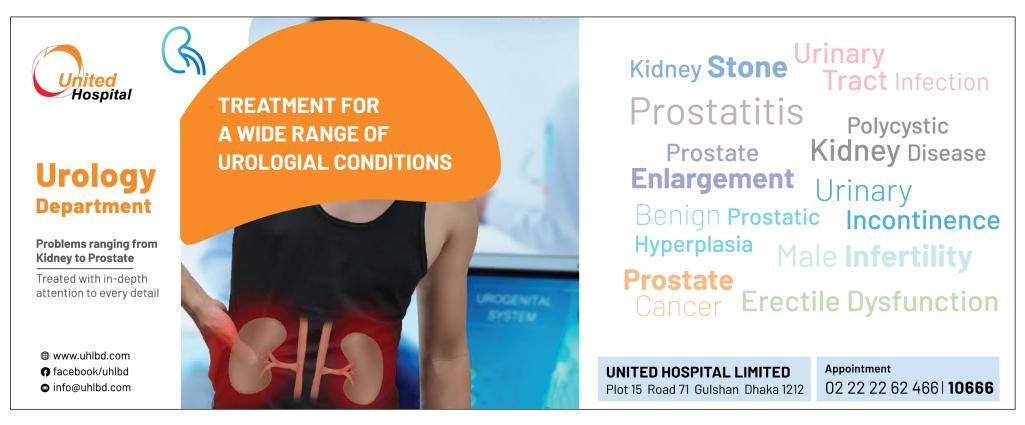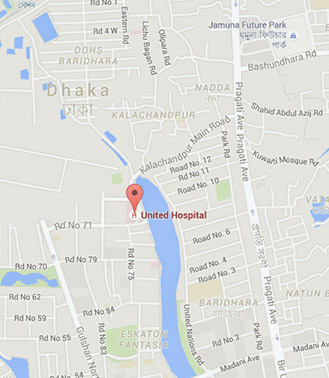Getting it right first time in urology

Urology can be broadly defined as the specialty that manages patients with diseases of the male and female urinary tract, and of the male reproductive organs. It covers a wide range of common conditions including urinary tract infections, urinary tract stones, problems with bladder emptying, urinary incontinence and erectile dysfunction. Urologists also treat patients with kidney, bladder, prostate, penile and testicular cancer. The last of these typically affects younger men than most cancers; prostate cancer, on the other hand, is most often seen in older patients.
While urology consultants carry out major surgical operations, such as removal of the bladder or prostate and open urinary tract reconstructive surgery, many urological surgeries can be conducted relatively swiftly and using minimally invasive techniques. This reflects the fact that urology was amongst the first surgical specialties to introduce endoscopic surgery; the specialty continues to be at the forefront of technological change.
All services under urology, covering emergency, outpatient diagnostic and investigative work, is offered by United Hospital. Transurethral resection of prostate (TURP) and bladder tumour (TURBT), the standard endoscopic approach to removing prostate and bladder tumours, are frequently carried out which provide diagnostic information as well as the tissue is subjected to microscopic examination. In addition, an increase in sub-specialization like andrology and genito-urethral surgery, endourology, female, neurological and urodynamic study, oncology and paediatric urology, remains to be a considerable proportion of the overall urological workload.
"In Urology, it is essential to decide the right treatment approach at the first instance, in conditions ranging from the commonest to rarest," says Dr Ali Zulkifl, Senior Consultant Urology of United Hospital. "Which treatment would suit what type of pathology, needs to be decided by the urologist, and here comes the role of his experience and knowledge", he says.
Urinary tract stones are one of the most common conditions dealt with by urologists. Stones can cause intense pain as they move from the kidney towards the bladder and obstruct urine drainage; a neglected, obstructing stone can cause permanent kidney damage. If there is accompanying infection, life-threatening sepsis can develop. There are a wide range of options for treating stones, from conservative management (essentially seeking to encourage the stones to pass naturally) to technologically advanced techniques like ureteroscopy and laser lithotripsy, which uses laser energy to break stones into small grains that can safely pass through the urinary tract. The laser is directed onto the stone using a long, narrow endoscope (ureteroscope). Sometimes, rather than providing definitive stone treatment, a decision is made to relieve the obstructed kidney so urine can be drained, while leaving the stone in situ. This can be achieved either by inserting a narrow plastic tube (stent) into the ureter, to allow urine to drain past the obstructing stone, or by passing a tube directly into the kidney through the abdominal wall (nephrostomy), allowing urine to drain directly into a bag. However depending on stone size, stenting is not offered in all cases, where patient is managed with PCNL (percutaneous nephrolithotomy).
The range of diagnostic tests and treatments that can be conducted in urology outpatient facilities is growing, as well as the core of standard urological investigations that includes flexible cystoscopy, prostatic biopsy and urodynamic testing. United Hospital Urology clinic offers treatments such as intravesical instillations to treat bladder pain, botulinum toxin injections for overactive bladders and suprapubic catheter insertions. This is in addition to out-patient procedures such as removal of ureteric stents, adult circumcision and vasectomies.
Urological problems in our community are often treated with negligence until it reaches a severe condition. Both men and women go through various urinary related issues which goes untreated at the primary stage. Thanks to the experience of urology consultants and continuous technological update, successful urology surgeries are now being recorded almost every day.
Performing complex urology surgeries in patients with cardiac illness and/or other comorbidities constitute a major part of challenges of Urology department of United Hospital. Here critical cardiac patient with even as low as 25% ejection fraction, has had prostate surgery (TURP) under general anaesthesia with successful outcome. Urology services are provided here in an integrated way by a dedicated team of anesthesiologists, skilled OT nurse and technicians and specially trained urology doctors.
"We focus on delivering right service repeatedly and consistently as we know that is what transforms average into excellence", says Dr Zulkifl. Doctors of United Hospital urology department serve the patients in outpatient setting, admitted patients in in-patient area and those in emergency department, under the guidance of senior consultant urology, as a single unit.




